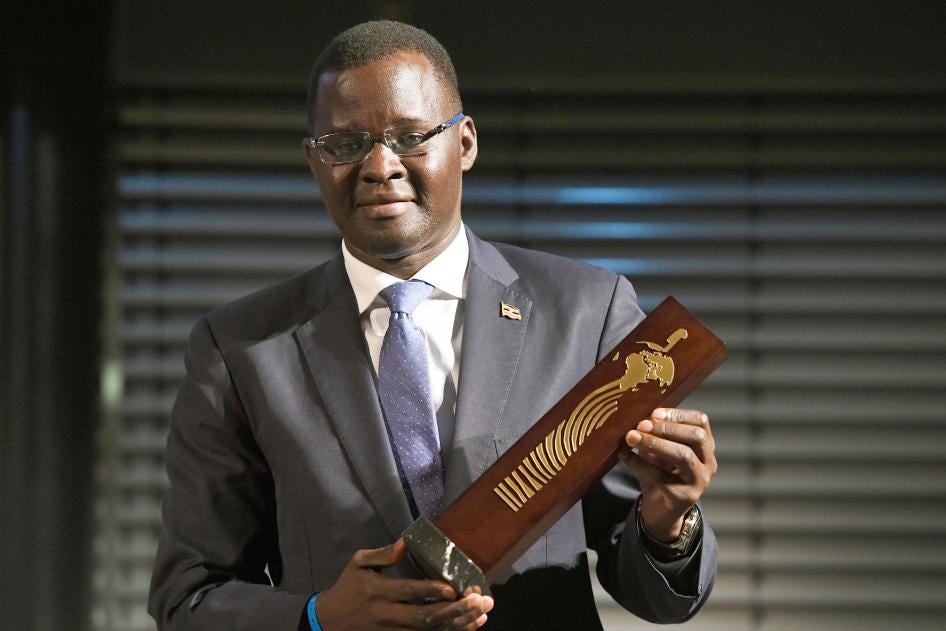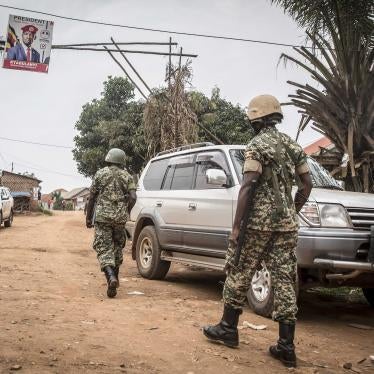The Ugandan High Court’s decision to overturn the suspension of Chapter Four, a legal aid organization, is welcomed but also a reminder of the urgent need to end unjustified and arbitrary restrictions on civil society groups in Uganda.
On August 10, 2021, the National Bureau for Non-governmental Organizations indefinitely suspended 54 civil society groups, including Chapter Four, on a range of grounds, including allegedly operating with expired permits. The Bureau accused Chapter Four of failing to file annual returns and audited books.On May 9, the High Court lifted Chapter Four’s suspension, saying it was “irregular.”
Chapter Four’s director, Nicholas Opiyo, told Human Rights Watch the suspension had created an atmosphere of fear and uncertainty in the sector and prevented the organization from doing its work, which includes public interest litigation. “Numerous cases [we were working on] have either stalled or have been dismissed by courts,” Opiyo said. “The organization has lost donors and supporters.”
This was not the first time the government targeted Chapter Four and other rights groups in Uganda. On December 22, 2020, armed policemen abducted Opiyo and four others from a restaurant in Kampala. The authorities charged him with receiving $340,000 on behalf of Chapter Four knowing the funds were “proceeds of crime,” but later dropped the charges.
In recent years, Ugandan authorities have used both formal and informal means to restrict the work of rights organizations. In 2020, it banned groups from doing election-related work ahead of the January 2021 general elections and, on election day, arrested more than 20 people for running a “parallel vote tallying center.” In 2021, the government indefinitely suspended the Democratic Governance Facility (DGF), a European Union fund for nongovernmental groups, saying the government did not have oversight over it. The authorities have also failed to investigate a string of burglaries and attacks on the offices of human rights organizations.
The court decision is welcome news in an environment that is becoming increasingly repressive. Instead of harassing and intimidating human rights organizations, the Ugandan government should prioritize creating an environment that supports their work and fosters protection of rights and the rule of law.









